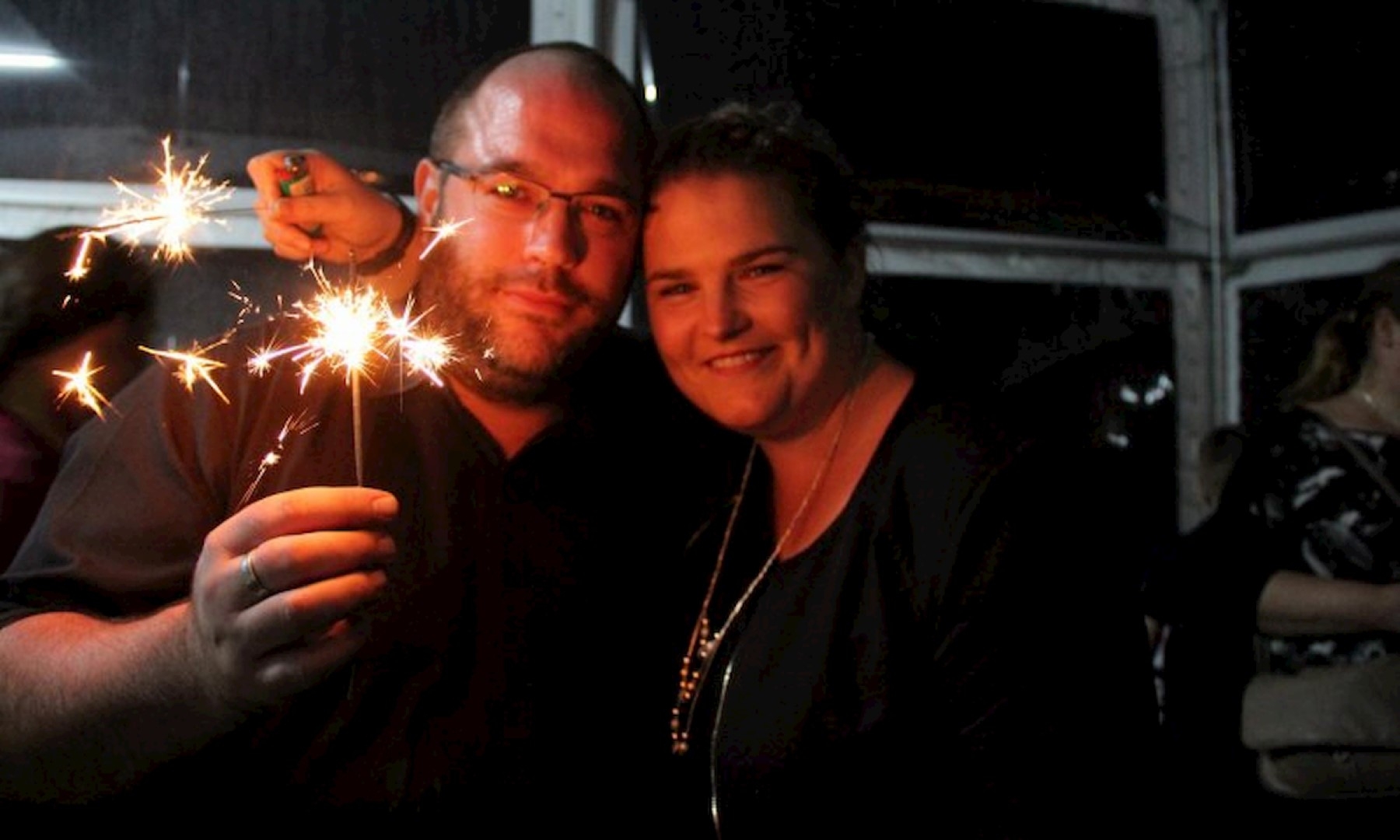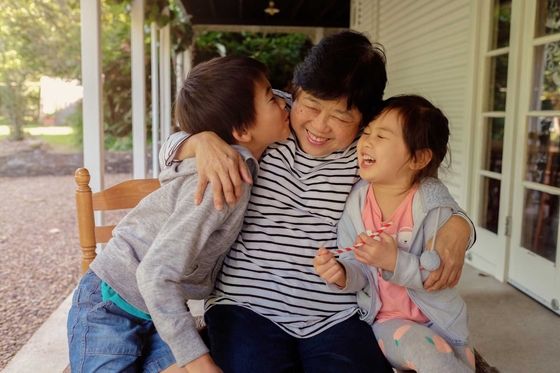
Cardiac arrest at 33: the challenges of restarting your life
Emma shares her story and opens up about her emotional struggles.
Thursday 14 April 2016 started the same as any other day. I woke up, made breakfast for my family, took my son to daycare then drove to work. My last memory of Thursday was making plans to meet a friend that afternoon.
I was at the supermarket when I had my cardiac arrest. According to reports, I said out loud that I thought I was going to faint. I then collapsed face first and several minutes passed before a staff member came to check on me. She realised from the colour of my skin and lips that something very serious was happening. I had no signs of life. Two staff members worked tirelessly doing CPR for approximately eight minutes until the ambulance arrived. They saved my life.
Paramedics delivered two shocks to start my heart and transported me to Sunshine Hospital. My injuries included cracked ribs, cracked sternum, bruised lung and retrograde amnesia from the lack of oxygen to the brain. I went through many tests including a CAT scan, angiogram, Xray, MRI of brain and heart and echocardiograms. None of which gave any explanation for the cardiac arrest.
Luckily, or unluckily, I have no memory of my time in emergency and when I woke the following Saturday, I was in the cardiac ward and it was my fifth wedding anniversary.
After more tests, I was told that I would be getting a model defibrillator inserted into my chest. It is called a subcutaneous implantable cardioverter defibrillator, S-ICD for short.
After a two week stay in hospital, I was allowed to go home. So many emotions stayed with me. I was terrified, nervous and scared.
Since I had it implanted, I have had five shocks from my defibrillator. I wouldn’t wish them on my worst enemy. Three occurred after I played a game of netball. I can still recall the feeling of thinking that I was going to die and that I would never see my son again.
I was once again taken to hospital and after a three day stay, I was back home. On reflection, I still hadn’t processed what had happened to me or what it meant.
The next two shocks happened while I was at work. I had just sat down with one of my students when I noticed I didn't feel right. I felt dizzy and could have sworn I heard a crackle in my chest. I was scared but concentrated on calming my breathing down. This time when I went back to hospital, it was to be a five week stay. I underwent two heart procedures, four treadmill stress tests, and had at least 50 different needles stuck in me.
This time. my stay in hospital was a real struggle. I found myself suffering flashbacks while sleeping. I would dream of having a shock and wake up thinking it had really happened. I was so depressed and cried constantly. Nearly everything set me off.
I think I had finally realised what had happened to me and I couldn’t understand why. What had I done? My emotional health was in a very bad place. My specialist arranged an electrophysiology study which would hopefully diagnose and help treat my heart condition.
The morning of the procedure I was incredibly scared and anxious. After the procedure, I woke up in recovery to overhear a nurse telling someone it had not been successful. My spirit was deflated.
A week later the procedure was repeated. When I woke up this time I heard the nurses say the procedure had been a success. A stress test done a few days later revealed that no dangerous rhythm was present. I rang my parents and there were lots of happy tears. When my husband arrived we could only hug and cry more happy tears.
However, that night after my husband went home, the doubt started to creep back in. What if the abnormal rhythm came back? How long would this last? Was I safe? The questions were endless and it wasn't long before my happy mood disappeared.
The psychological impact has been the hardest for me. You forget that your brain needs time to recover as well. During my stay in hospital all the emotions that had been building up were slowly released. I have never been so emotional. I cried for the life I had, I cried about how unfair it was, and I cried from fear of the future.
The anxiety of being left alone can be overwhelming. Debilitating almost. I hated being alone in my own home. Anxiety and panic attacks are awful and I still need to learn to deal with them and not to let them dictate my life.
Seventeen months after my sudden cardiac arrest I received results from genetic testing. My cardiac arrest was due to a genetic condition called Arrhythmogenic Right Ventricular Cardiomyopathy. Finally, I had an answer.
Emotionally I still have my ups and downs and find myself thinking about life and how unfair it can be. But on the other hand, I know how lucky I am to live in a country where healthcare is at your fingertips. Now we just need to educate more people on the importance of learning CPR and have more defibrillators in public places. Sometimes I celebrate my survival and sometimes I still get angry. Recovery goes on...
In May 2020, The Heart Foundation hosted Supporting Your Emotional Wellbeing, an online forum that provided information to heart patients on managing emotional health and wellbeing. If you’re a young heart patient (aged 18 - 40 years) and are looking for information and tips about dealing with fear and worry, managing anxiety, and more – check out the recording here.
You might also be interested in...

Women's heart stories
Watch women from across Australia and some of their husbands and fathers tell us about their experience with heart disease.
.jpg?width=560&height=auto&format=pjpg&auto=webp)
What is a cardiac arrest?
With immediate help a cardiac arrest can be survived. Learn how to save a life.
.jpg?width=560&height=auto&format=pjpg&auto=webp)
Do you have a Heart Story to share?
By sharing your heart story, you can help save lives. You can tell others about the warning signs of a heart attack, the importance of a Heart Health Check, or even what it’s like to live with chronic heart disease.
Last updated26 February 2024
Last reviewed20 December 2023